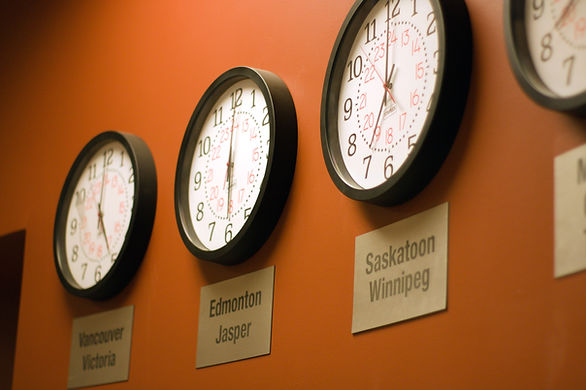Many parents often have the same questions when a trip is coming up, how to fly with medication. As moms, we always want to ensure the well-being of our families, and traveling with necessary medications is an important aspect of that. Whether it’s a short domestic flight or a long-haul international journey, proper preparation and organization are key to ensuring a smooth experience.

This site contains affiliate links; please view the disclosure for more information.
So fasten your seatbelts and join me as we navigate the skies and learn how to safely fly with medication!
Know the Rules and Regulations on How to Fly with Medication
Before you take flight, it’s important to familiarize yourself with the rules and regulations concerning medication transportation. Each country and airline may have specific guidelines, so doing your research ahead of time will save you from any last-minute surprises. Start by checking the official website of your chosen airline and the transportation security administration (TSA) for up-to-date information on what is allowed and what is not. Understanding the rules will help you plan and pack accordingly.

Consult Your Healthcare Provider
Your doctor can provide valuable advice on how to properly store and handle your specific medication during the flight. They may also offer suggestions on adjusting dosages to accommodate time zone changes or any other factors that could affect your medication schedule. Be sure to ask for a written prescription or a note explaining your condition and the need for carrying the medication with you.
Organize and Pack Your Medication
Packing your medication effectively is vital for both convenience and safety during your trip. Here are some tips to help you stay organized:
Carry-On vs. Checked Luggage: Always keep your medication with you in your carry-on bag. This way, you’ll have easy access to it during the flight, and you won’t risk losing it if your checked luggage gets misplaced.
Keep Medication in Original Packaging: While it may be tempting to save space by transferring medication into smaller containers, it’s best to keep them in their original packaging. This allows for easy identification and provides information on dosages, instructions, and potential side effects.
Temperature-Sensitive Medication: If you’re carrying temperature-sensitive medication, such as insulin, check with the airline beforehand to see if they offer special accommodations for storage during the flight. You may need to bring a small insulated bag or cooling packs to maintain the proper temperature.
Divide Medication between Bags: Splitting your medication between different bags can be a smart move in case one bag gets lost or stolen. This way, you won’t be left without essential medication in an unfamiliar place.
Security Screening: How to Fly with Medication
When going through airport security, it’s important to follow the necessary protocols while keeping your medication safe. Here are a few guidelines to ensure a hassle-free experience:
Separate Medication from Other Items: When you reach the security checkpoint, place your medication separately in a clear plastic bag. This will help the security personnel identify it easily and expedite the screening process.
Declare Medication: Inform the security officers that you’re carrying medication before the screening begins. This will ensure they are aware and can provide any necessary assistance.
Request Hand Inspection if Needed: If you have any concerns about the X-ray machines or body scanners affecting your medication, you have the right to request a hand inspection. Simply inform the security personnel, and they will conduct a manual inspection of your medication.

Handling Time Zone Changes
If you’re traveling across multiple time zones, it’s important to adjust your medication schedule accordingly. Here are a few tips to show you how to fly with medication and manage the transition smoothly:
Consult Your Doctor: Talk to your healthcare provider about adjusting your medication dosages to align with the new time zone. They can guide you on whether to take your medication earlier or later than usual to maintain consistency.
Set Reminders: To avoid missing doses, set reminders on your phone or carry a travel alarm clock. Adjust the reminders according to the new time zone to stay on track with your medication schedule.
Keep a Schedule: Maintain a written or digital schedule of your medication dosages and times. This will help you stay organized and prevent any confusion or errors during your journey.
Storing and Administering Medication during the Flight
During the flight, it’s essential to store and administer your medication properly to maintain its effectiveness. Here are some tips to help you handle medication while in the air:
Follow Storage Guidelines: Check the medication packaging or consult your healthcare provider for specific storage requirements. If refrigeration is necessary, ask the flight attendants if they can store it for you, as some aircraft have special compartments for medical purposes.
Keep Medication within Reach: Store your medication in a small bag or pouch that fits in the seat pocket or under the seat in front of you. This way, you’ll have easy access to it throughout the flight without having to disturb other passengers or reach into overhead compartments.
Stay Hydrated: Airplane cabins can be dry, so it’s important to stay hydrated. Drinking enough water can help prevent dehydration and ensure optimal medication absorption. Remember to follow any specific instructions from your healthcare provider regarding fluid intake while taking certain medications.
Respect Privacy: If you need to administer medication during the flight, maintain your privacy by using the lavatory or covering yourself discreetly with a blanket or scarf. It’s important to prioritize your health but also respect the comfort and privacy of other passengers.
How to Deal with Security and Customs When Flying with Medication
If you’re flying internationally, you’ll likely encounter security and customs checks upon arrival. Here are some tips to navigate these processes smoothly:
Carry Documentation: Keep your prescription, doctor’s note, and any relevant medical documents easily accessible. These documents can help verify the legitimacy of your medication and avoid any unnecessary delays or complications during security or customs inspections.
Research Local Laws and Regulations: Before traveling to a foreign country, familiarize yourself with their laws and regulations regarding the importation of medication. Some countries have strict regulations on certain medications or require additional documentation. Make sure you comply with the local requirements to prevent any issues.
Translate Medication Information: If you’re traveling to a country where English is not widely spoken, consider translating important medication information, such as the name of the medication, dosage instructions, and any allergies or conditions, into the local language. This can be helpful in case you need to seek medical assistance or communicate with local authorities.
Emergency Preparedness
While we hope for smooth travels, it’s always wise to be prepared for unexpected situations. Here are some emergency preparedness tips:
Pack Extra Medication: In case of flight delays, cancellations, or unforeseen circumstances, it’s a good idea to carry extra medication with you. Aim to pack at least a few days’ worth of additional doses to account for any unexpected changes in your travel plans.
Carry Emergency Contact Information: Keep a list of emergency contact numbers, including your healthcare provider’s information, readily available. In case of any medical emergencies during your journey, having this information easily accessible can help you receive prompt assistance.
Travel Insurance: Consider purchasing travel insurance that covers medical emergencies. This can provide peace of mind and financial protection in case of unforeseen medical situations while traveling.

Final Thoughts on How to Fly With Medication
Flying with medication as a mom requires careful planning and organization. By following these tips on understanding regulations, consulting your healthcare provider, packing and storing medication properly, handling time zone changes, navigating security and customs, and being prepared for emergencies, you can fly with confidence, knowing that you have everything under control.



